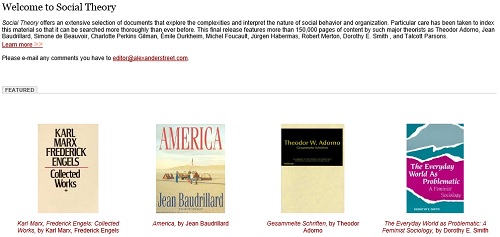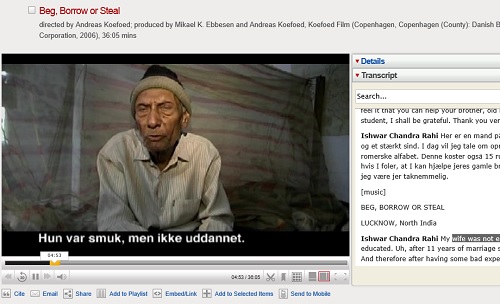Throughout the summer, we’ve been exploring how to do academic-level research in each of the major disciplines IU East offers degrees in. While there are plenty of commonalities and general techniques that we covered in the first week, each discipline has its own dedicated material. This week, we’ll look at the study of sociology.
While social theory is most concerned with how things like class, religion, law, and social behavior relate and interact in the present, it is possible that you will be interested in historical social theory, or how social change occurred in the past. If so, a historical database like JSTOR will be ideal.
For most research questions, though, you will want a general sociology database. The largest and best include SocIndex and ProQuest Social Sciences, which would be good first choices. And for ebooks, try the Social Theory collection or Brill’s Social Sciences ebook collection. For articles with an international scope, try Periodical Index Online(although this database only offers citations, so you will need to use it far enough in advance of your due date to make use of interlibrary loan). All of IU East’s other sociology-related databases can be found here.
So, if we wanted to find qualitative research on at-risk populations using class conflict theory, but not use anything dealing with criminal populations, we might try a search like this:
Notice that we are looking for three distinct concepts (using several synonyms to find articles that might use different terms than we expect), and excluding another entirely. It may seem like a hassle to do it this way, but we get a much more focused, manageable list of articles than if we had just searched for ‘conflict theory’ and hoped for the best. Spending extra time to craft a good search always pays off when you don’t have to wade through page after page of irrelevant results.
Of course, social theory requires skills and resources that aren’t shared by all other disciplines. And we have special sources for these, too.
OPINIONS
When social theory is used by policy makers and legislators, the opinions and viewpoints of many competing parties come into play. And while most scholarly material tries to minimize bias, you may be researching a topic where that bias is of paramount importance – either to understand it as a source for conflict, or to advocate for a contentious position yourself.
That’s where Opposing Viewpoints in Context comes in. This database includes information on all the major social issues, and does include some news and research content – but its main distinction are ‘viewpoint’ articles, written by partisan leaders and clearly and articulately stating the positions and beliefs of each side in the major cultural and social struggles. These articles make no pretense of being unbiased, but they are an unparalleled source for quickly finding cogent and well-reasoned descriptions of major social viewpoints.
VIDEOS
Sometimes, especially when researching an unfamiliar topic, the added dimension that films give to communicating ideas can be very helpful. One such video database is VAST, which includes documentaries, newsreels, counseling sessions, and raw field recordings that help depict the social element of the human condition. Videos include elements of current events, cultural studies (including anthropological research), and major social issues involving law, religion, education, and more. The videos play next to an interactive transcript, allowing you to quickly access the material of most interest to you.
With lots of sociology resources like these available to you, you are well on your way to doing great research. But if you have any questions, please contact us at iueref@iue.edu!



